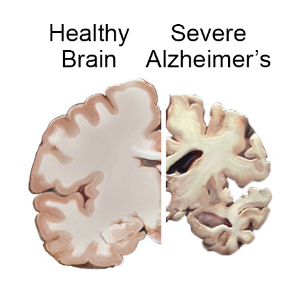Alzheimer’s disease is a progressive neurodegenerative disorder that primarily affects memory, thinking skills, and behavior. The condition is divided into stages, with mild to moderate Alzheimer’s representing the early to middle phases of the disease. At these stages, cognitive decline is noticeable but does not yet severely impact daily functioning.

Symptoms of Mild to Moderate Alzheimer’s Dementia
Early-Stage (Mild) Symptoms
- Short-term memory loss (e.g., forgetting recent conversations or appointments)
- Difficulty finding words
- Trouble with planning and organization
- Mild confusion and disorientation
- Changes in mood, such as increased anxiety or depression
Moderate-Stage Symptoms
- Worsening memory impairment (e.g., forgetting significant events or personal history)
- Increased difficulty with problem-solving and decision-making
- Difficulty recognizing familiar faces or locations
- Impaired ability to perform daily tasks, such as cooking or managing finances
- Behavioral changes, including irritability and aggression
Diagnosis and Assessment
Clinical Evaluation
Physicians diagnose Alzheimer’s through a combination of medical history, cognitive assessments, and neurological evaluations. Common tests include:
- Mini-Mental State Examination (MMSE) – A brief test to assess cognitive function.
- Montreal Cognitive Assessment (MoCA) – A more detailed cognitive screening tool.
- Neuroimaging (MRI or CT scans) – To rule out other causes of cognitive impairment.
Treatment and Management
Medication Options
While there is no cure for Alzheimer’s, several medications can help manage symptoms:
- Cholinesterase Inhibitors (e.g., Donepezil, Rivastigmine) – Improve communication between brain cells.
- NMDA Receptor Antagonists (e.g., Memantine) – Help regulate brain function and slow cognitive decline.
- Antidepressants and Antipsychotics – Used to manage mood and behavioral symptoms.
Non-Pharmacological Approaches
- Cognitive Therapy – Stimulates memory and reasoning skills.
- Physical Activity – Encourages blood flow to the brain and improves overall health.
- Dietary Modifications – The Mediterranean or MIND diet has been linked to brain health.
- Social Engagement – Regular social interaction can slow cognitive decline.
Caregiving Strategies for Patients
Caring for someone with Alzheimer’s requires patience and understanding. Effective caregiving strategies include:
- Establishing a daily routine to reduce confusion.
- Using visual and verbal cues to aid memory.
- Encouraging independence in manageable tasks.
- Providing emotional support and reassurance.
- Seeking professional support or joining caregiver support groups.
Future Research and Innovations
Research on Alzheimer’s disease is advancing, with promising developments in:
- Biomarkers for early detection – Blood tests and spinal fluid analysis.
- Gene therapy – Targeting genetic mutations linked to Alzheimer’s.
- Immunotherapy treatments – Exploring the role of monoclonal antibodies in reducing amyloid plaques.
Mild to moderate Alzheimer’s-type dementia presents significant challenges, but early intervention and appropriate care strategies can help patients maintain their quality of life. Ongoing research and advancements in treatment offer hope for better management and potential future breakthroughs in combating this condition.

